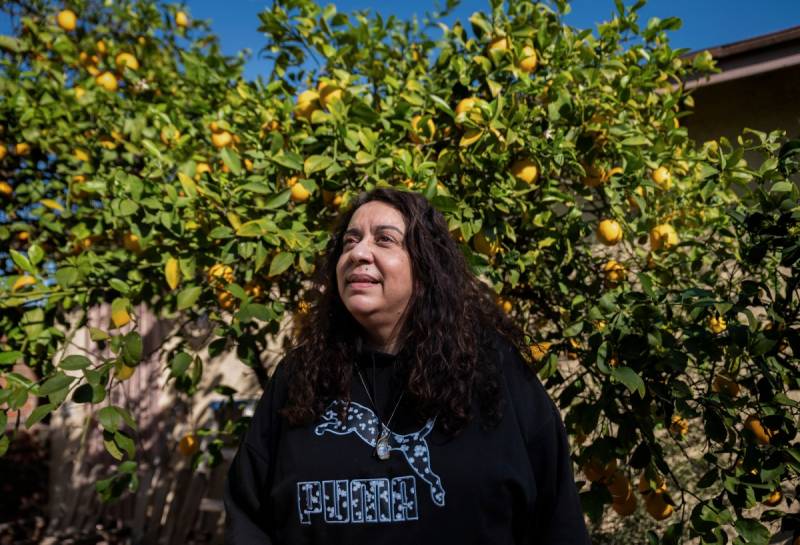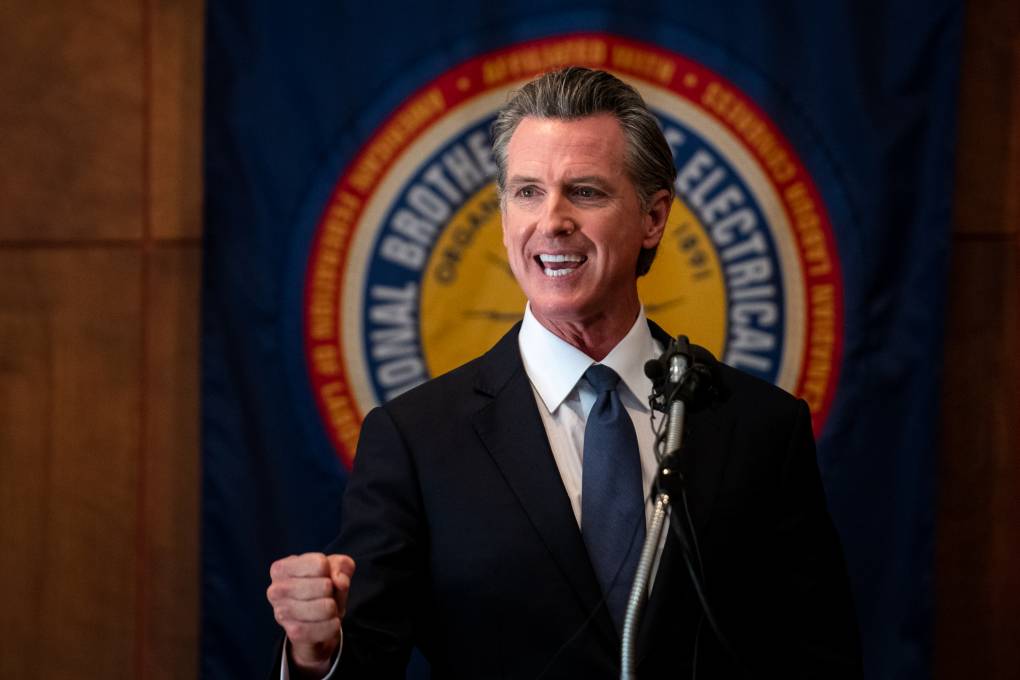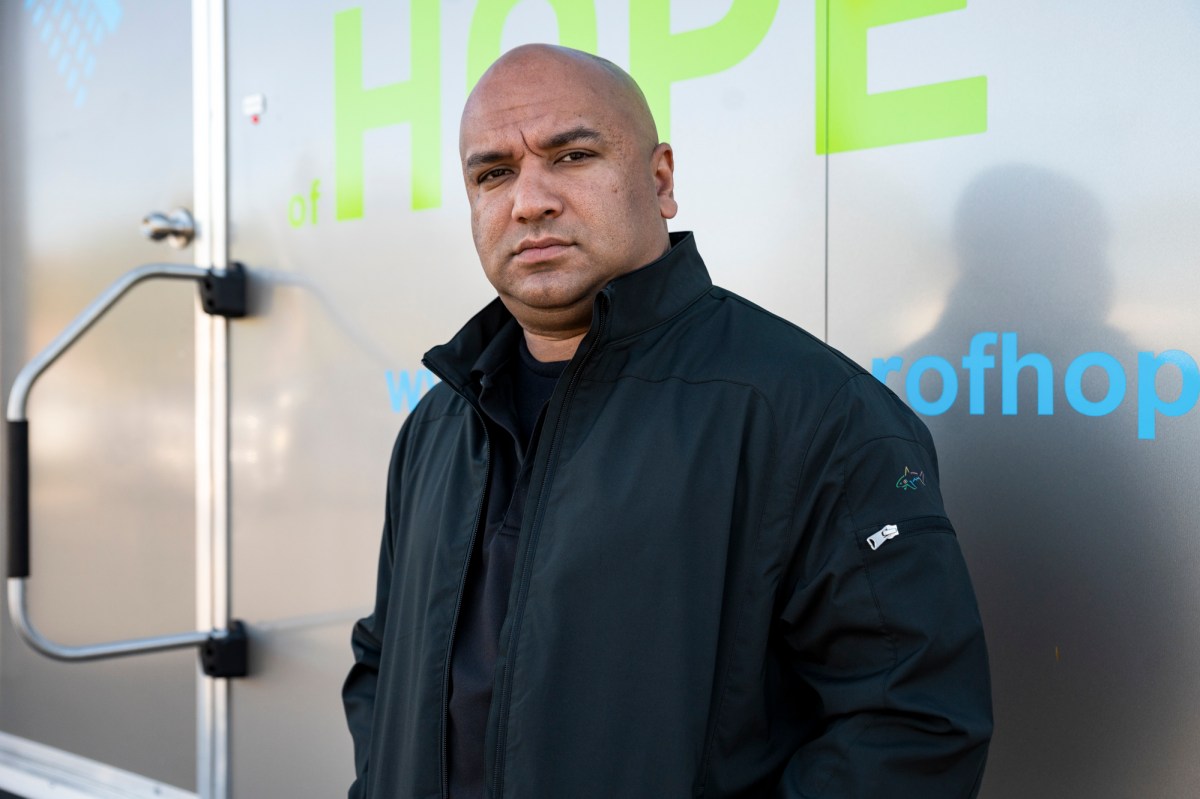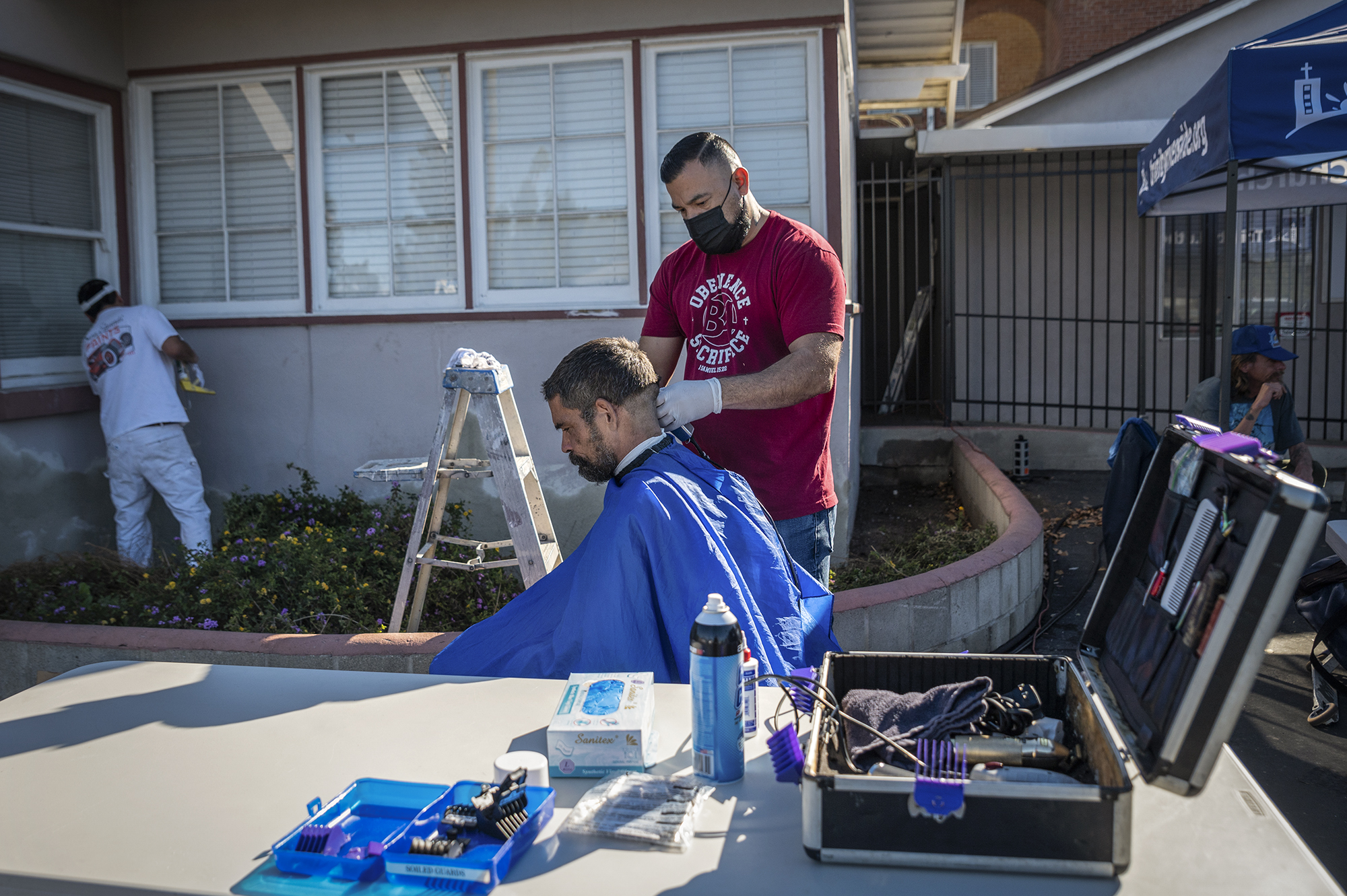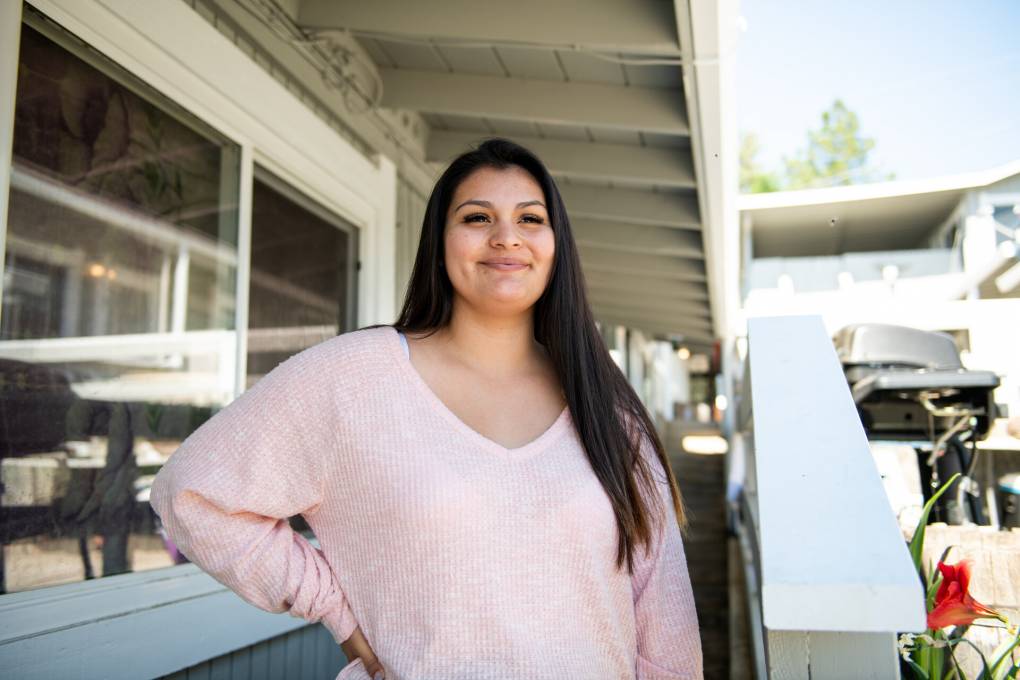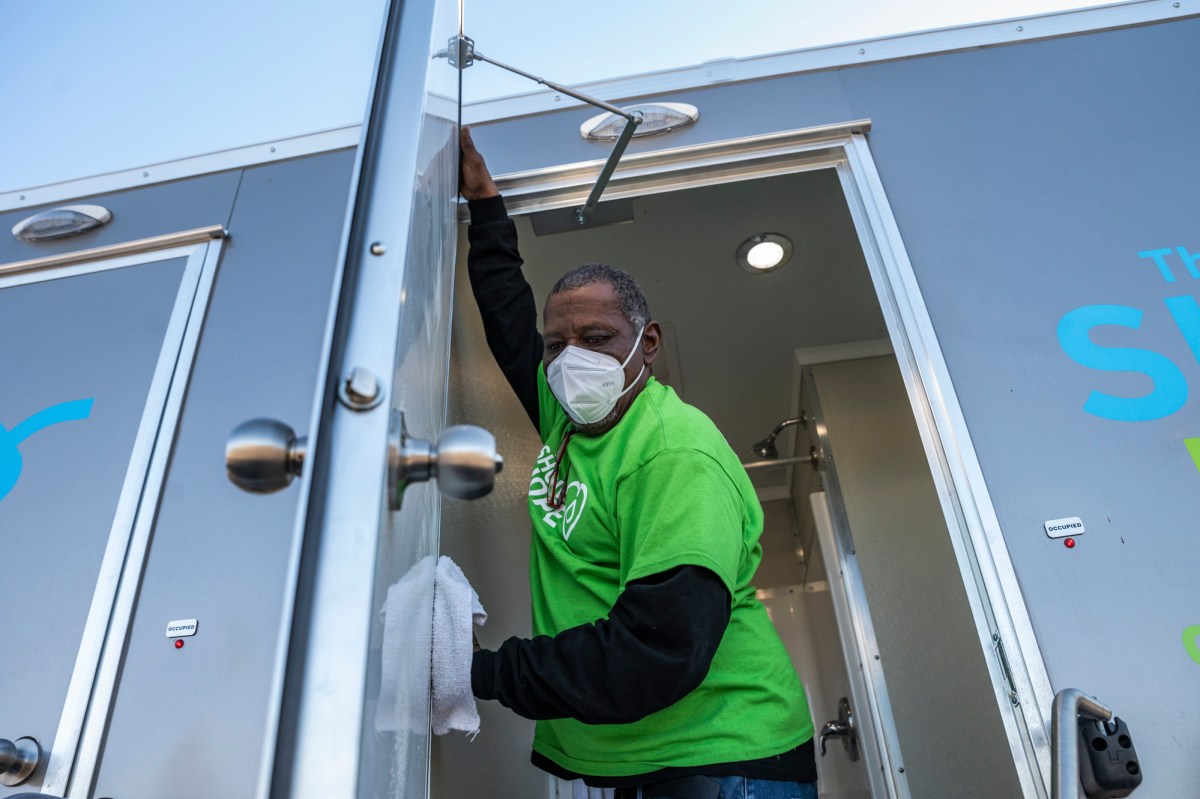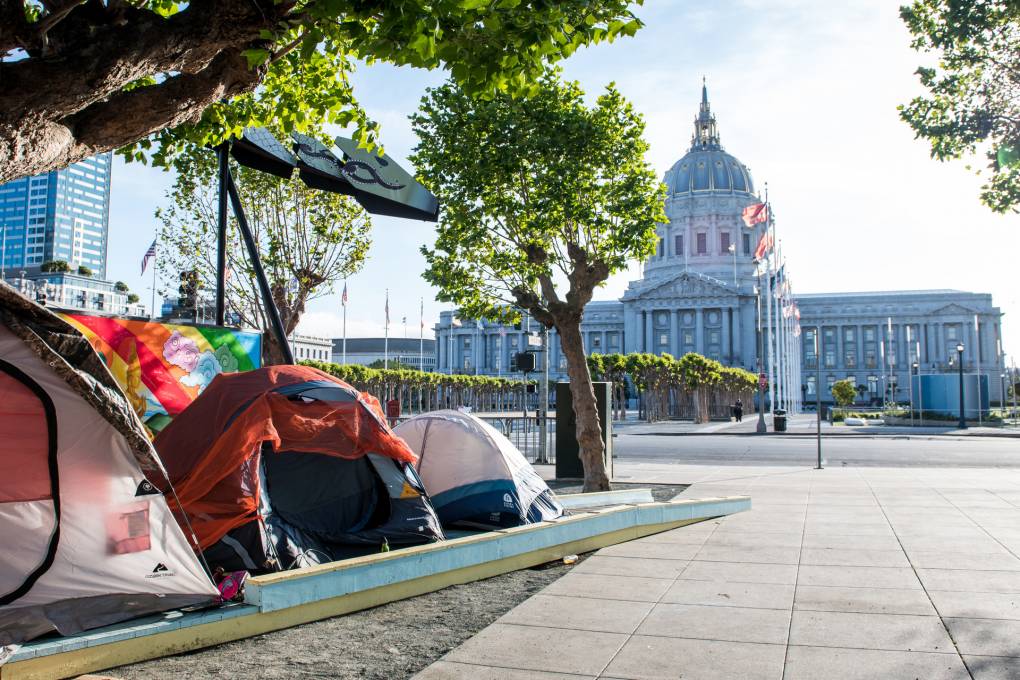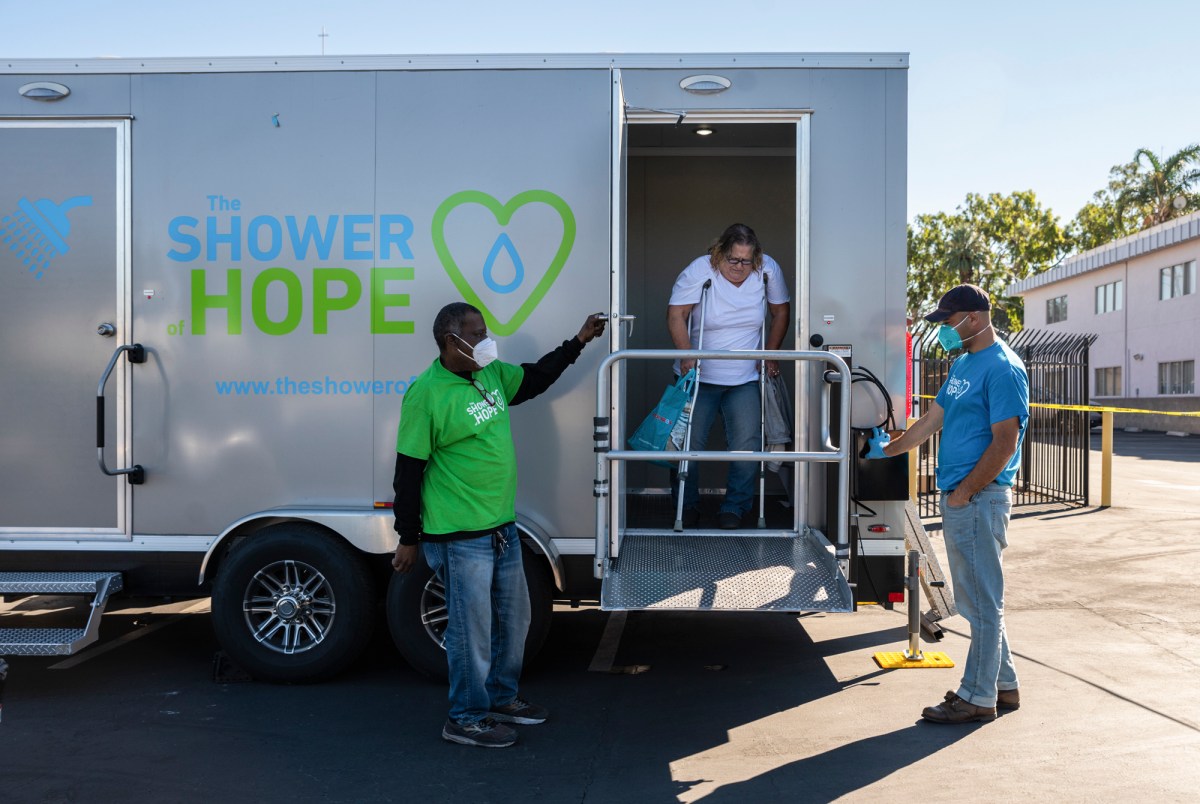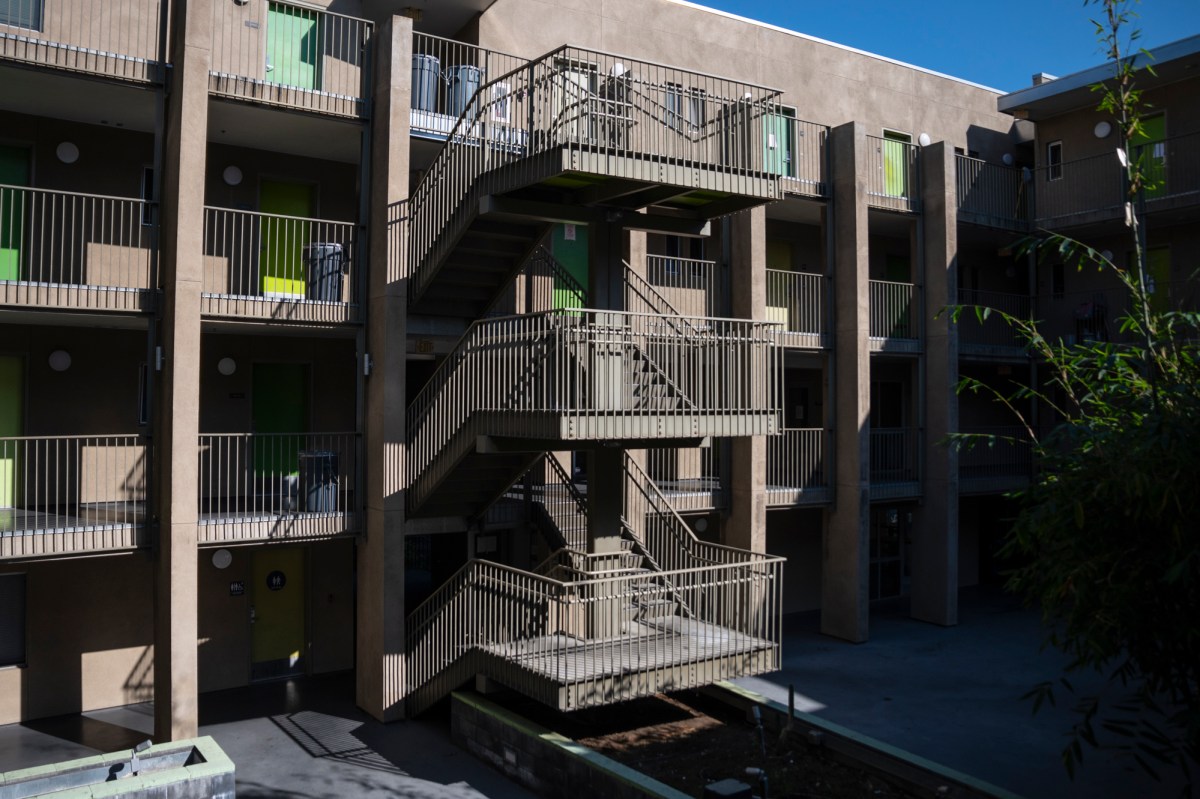In the middle of March last year, Los Angeles officials were gearing up to clear an encampment of 200 unhoused persons at Echo Park Lake.
For Denise Velazquez, 53, then an outreach worker with the Los Angeles Homeless Services Authority, her task was clear: Get 10 people indoors.
She helped her clients — who were cold, tired and desperate to shower — pack their bags and sign intake forms. She gave them hope that warmth was around the corner: hotel rooms under Project Roomkey, the state’s program to shelter unhoused people most at risk of catching COVID-19.
But orders changed overnight. Her agency had access to only three beds, and when she told her clients, they yelled, spit and lunged at her partner. Velazquez says she broke their trust — and that broke her heart.
“My stomach is feeling so uncomfortable and heart broken,” Velazquez wrote in an email to her supervisor on March 18, 2021.
LAHSA spokesperson Ahmad Chapman said various local service providers placed 176 of those at the Echo Park encampment in interim housing programs.
In the weeks that followed, Velazquez said her health deteriorated. Her blood pressure spiked, her diabetes worsened, and her anxiety and depression spiraled. Her employer granted her a medical leave of absence, but therapy revealed that the only way to heal, she said, was to quit. Abandoning her clients broke her heart all over again.
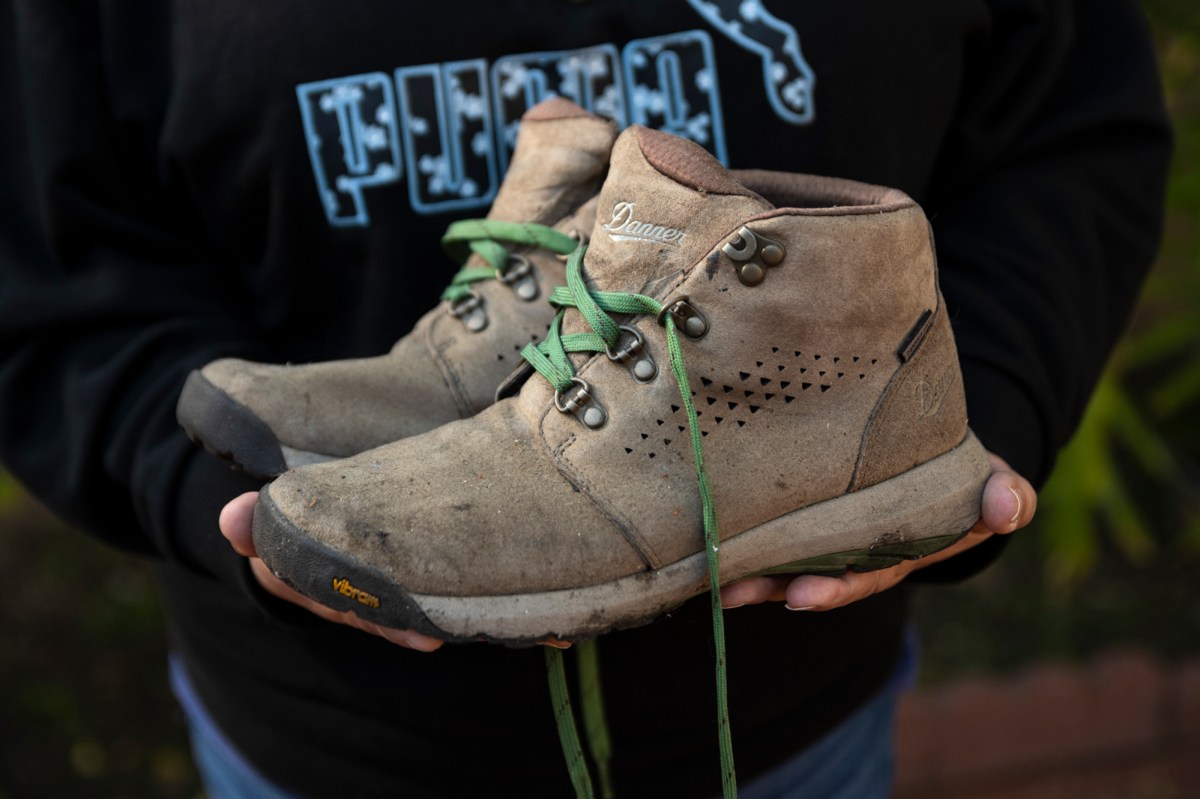
Turnover has long plagued the homeless services field. COVID-19 has only made the problem worse as the omicron surge causes worker shortages across California’s economy. And without enough service workers, the state’s ambitious, multibillion-dollar strategy for reducing homelessness is unlikely to work.
Most people who enter social work know to expect small paychecks; they’re driven by compassion and a desire for positive change. But caring too much can be crushing when housing is elusive, mental health services scant, and communication splintered among the myriad entities who decide the fate of the unhoused.
“We’re paying these folks pennies on the dollar to burn themselves out completely,” said Tami McVay, assistant program director at Self-Help Enterprises, which serves lower-income communities in the San Joaquin Valley.
